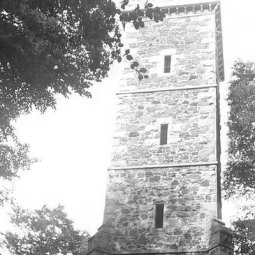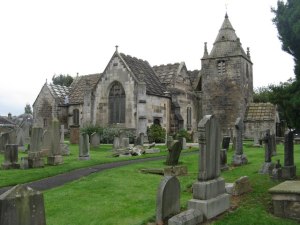 Tangled Blonde
Tangled Blonde
In Ken Johnson’s story, All our Heroes are Busy at the Moment we read:
“Tawny was the tangled blonde, glamorous grandmother type and spoke with a Corstorphine accent.”
Corstorphine Accent?
What does Ken Johnson mean by this? My hunch is a posh Edinburgh accent, along the lines of Jean Brodie, but I honestly couldn’t tell you what a distinctively Corstorphine accent would sound like. The Jean Brodie/Morningside accent has practically died out.
No doubt, back in the day when there were distinct villages in these parts, Corstorphine speech probably had some notable differences from that of Musselburgh or South Queensferry. These days it’s actually really hard to tell.
There are several accents within Edinburgh & Leith – most of these are based on class, not area. The poshest accent in Edinburgh is barely distinguishable from RP and its speakers frequently mistaken as being English. The least prestigious is very nasal. And again there are a few words that are used in Leith not usually found in Niddrie & vice versa, but just that… a few. You’ll find a greater difference between the alumni of Craigmount & Watsons… most of Edinburgh’s accents are sociolects – class-based.
Maybe certain schools use certain words, but surely that means there will be as much difference between Forrester, Craigmount & St Augustines as anything else.
I’ve written a bit on the the subject of language here.
On not being native
It’s safe to say that I don’t have a Corstorphine accent, whatever that is. I didn’t grow up here and my parents didn’t come from the west of Edinburgh. My accent is more to do with northern Scotland and bad American telly. But I have spent over half my life here.
I remember reading an article in a local free sheet talking about how certain people who used to run a shop in Corstorphine decades ago were not local. They were from Stockbridge! Well, if you’re not from Edinburgh originally, that’s hardly a long distance. It seems a bit odd in this day and age to be thinking that way. You only have to walk up and down St John’s Road to see people from other countries – eastern Europe & Asia, sometimes Africa, or Wales (when the Six Nations is on). Compared to them, I’m much less exotic.
Given that this whole area has mushroomed since the war, is any of this meaningful anymore?
A probable answer
Fortunately, I do have a bit of an inside track here. I have met Ken a few times. He is originally from southern England, but has lived in the city for years. Ken wrote this piece back in 2009 – I’ll put it down to a lack of local knowledge.
Still it did get me thinking. Is there such a thing?
External Link
